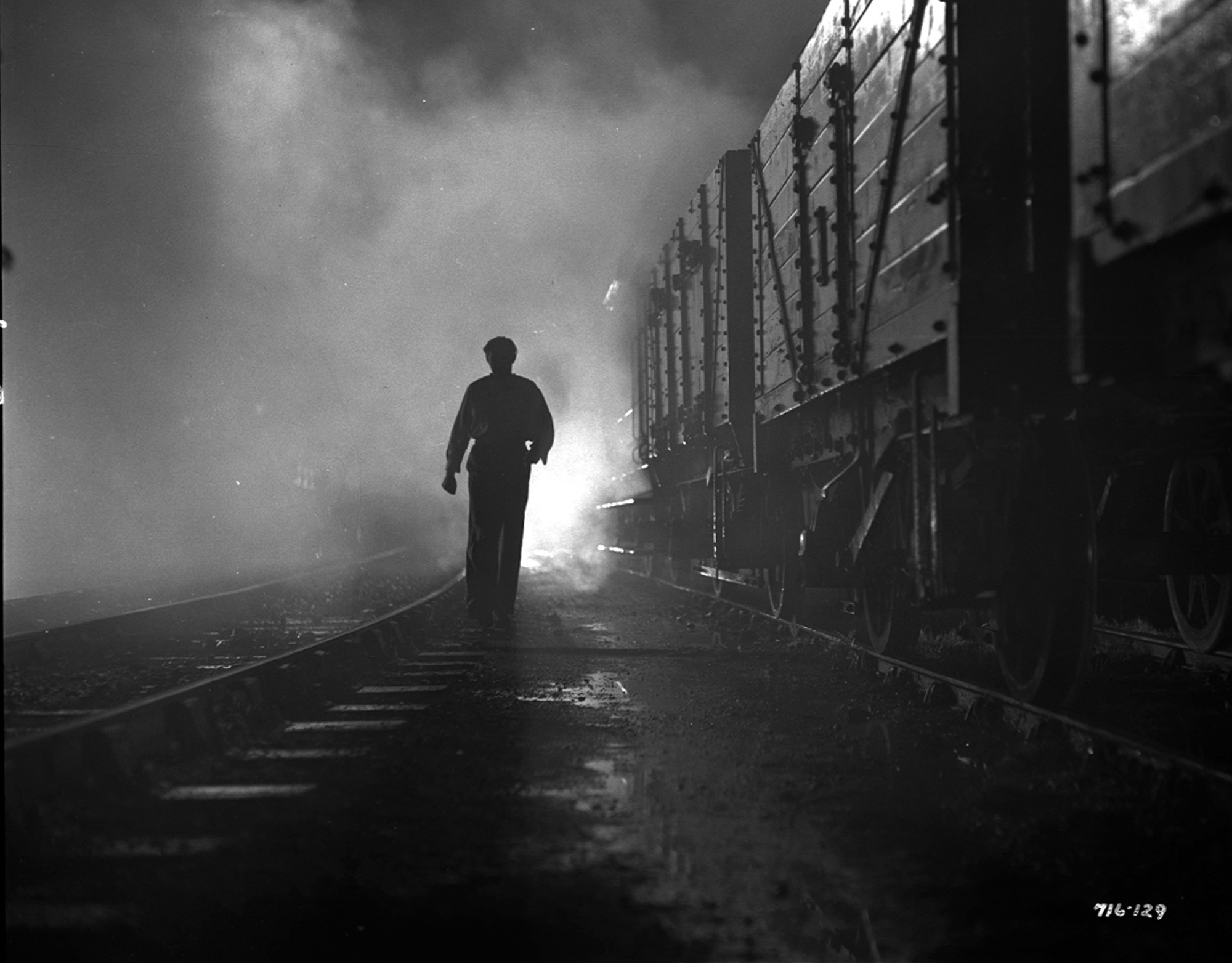
There’s a special joy that comes when you watch an old movie with no preconceptions because you’ve never heard of it and come away loving it. That’s the lucky experience I had some years ago with It Always Rains on Sunday. A big hit for Ealing Studios in 1947, it was forgotten in the ensuing decades. But thanks mainly to restoration and promotion by the cinematic angels at BFI, many modern viewers have had the wonderful experience I did with a film that is both enthralling and culturally significant.
The movie’s plot is two-fold. On the one hand, It Always Rains on Sunday is a romantic drama somewhat like one of my other recommendations, Brief Encounter, but for the working classes. On the other hand, the movie is like a gazillion of my other recommendations in being a film noir. These two genres come together as follows:
In a cramped, dingy house in the East End, a once carefee ex-barmaid named Rosie Sandigate (Googie Withers) is chafing under dreary post-war British domesticity. Her husband George (Edward Chapman) is older, decent, and dull, and her step-daughters get on her nerves, particularly the free spirited Vi (Susan Shaw) who is stepping out with a flashy, married man (Sydney Tafler). Rosie’s drab world is upended one Sunday morning when she goes out to her Anderson shelter and is startled to discover a handsome criminal on the run: her former lover, Tommy Swann (John McCallum)! Tommy begs Rosie to help him, and amidst a tumble of emotions, she agrees, leading to a life changing Sunday indeed.

From this description, this film may sound like a misbegotten mish-mash but the potentially competing strands are expertly woven together courtesy of screenwriters Angus MacPhail and Henry Cornelius, and, co-writer and director Robert Hamer. When people think of Hamer and Ealing Studios, the peerless black comedy Kind Hearts and Coronets and other funny films naturally springs to mind. But Ealing wasn’t yet a comedy powerhouse in 1947, and to the extent Hamer was known at all when he was signed to make It Always Rains on Sunday, it was for directing part of a classic horror film (Dead of Night). Hamer, who died tragically young from alcoholism, was no stranger to turbulent emotions and brings them out on screen here.
Googie Withers really makes the domestic side of this story hit home. She’s downright brilliant at portraying competing emotions: Disapproving of Vi but also envious of her youthful freedom and passion; Barely tolerating George yet also yielding to the virtues of stable commitment; and most of all, being intoxicated by, scared of, and scared for Tommy. Outside of the confines of the Sandigate home, the movie focus more on action than drama, with equally potent results. The thrilling pursuit of Tommy by the police ends with an epic train yard confrontation that was filmed with no stunt people (i.e. those are the real actors dodging and climbing on real trains).

The look of this film is critical to its success. The Sandigate home is the apex of British drear (hat tip to Art Director Duncan Sutherland), from the faded wallpaper to the cracked plaster to the fractured windows to the piled bric-a-brac. Rosie’s frustration at how her life has turned out is accentuated by her surroundings in every cramped, overcrowded scene on that remarkable set. And for the shadowy scenes of action and intrigue, it’s always hard to beat Douglas Slocombe, whose noir camerawork I have praised many times (e.g., Taste of Fear, Robbery).
The film was influential in shaping an emerging genre (Brit Noir) but even moreso in prefiguring the kitchen sink dramas that would become popular a decade later. It Always Rains on Sunday contains the seeds of mega-hit working class soap operas like EastEnders and Coronation Street as well as darker fare like Look Back in Anger. In an era when many British films were filled with earls, viscounts, and people who dress for dinner, It Always Rains on Sunday gave working class people overdue attention.
Withers and McCallum began a 60+ year marriage shortly after making It Always Rains on Sunday. Rather than close with the movie trailer, I will instead share a charming interview with their daughter, Joanna McCallum. An an actress herself, she offers insight into both the movie and the relationship of her remarkable parents.
